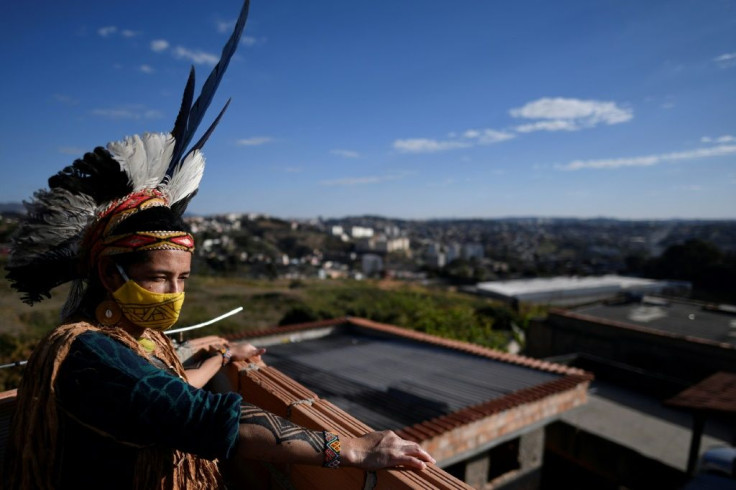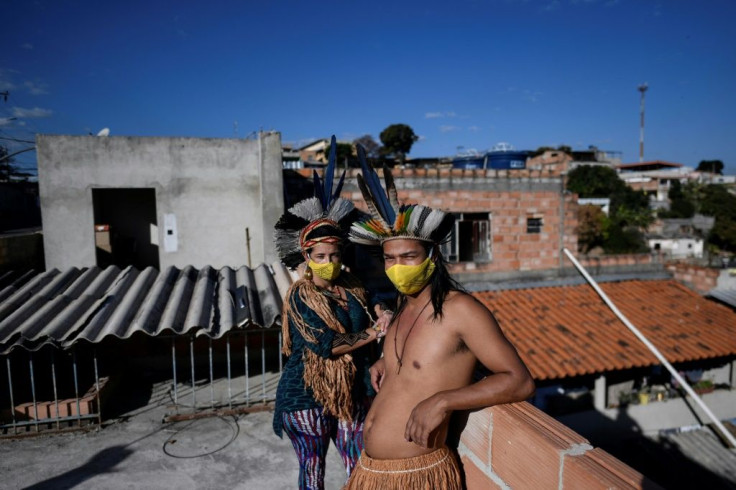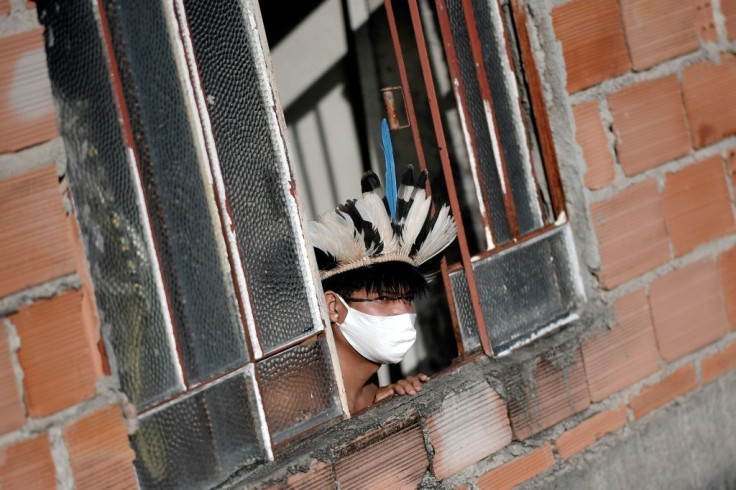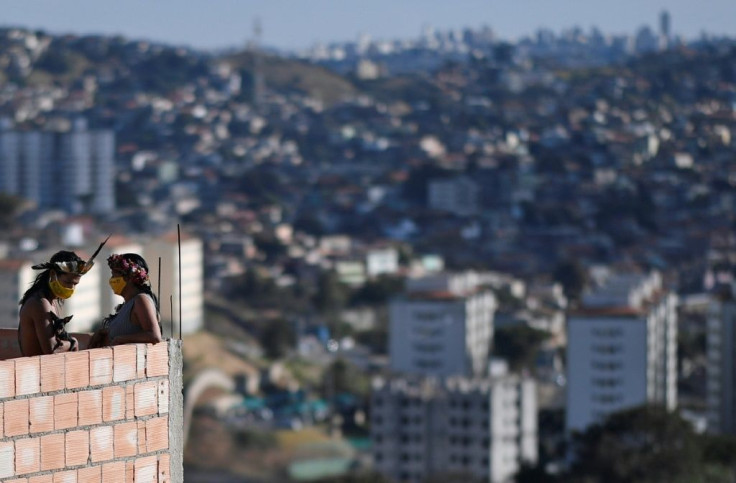Brazil's Displaced Indigenous Struggle In Concrete Jungle Far From Home
Forced to leave her home after last year's Brumadinho dam disaster that killed 270 people, indigenous woman Angoho Pataxo Ha-ha-hae is now fighting the coronavirus sweeping through her community in the concrete jungle of a favela far from her ancestral home.
"Here in the neighborhood there are already 120 cases, if we go on like this more people from our group will be contaminated," said 53-year-old Angoho, panting for breath as she spoke.

The Pataxo Ha-ha-hae people are an 11,000 strong indigenous group from Bahia in northeastern Brazil.
But Angoho and her husband Hayo, the community's chief, are living in a two-room concrete house in Vila Victoria, on the the outskirts of Belo Horizonte, one of Brazil's biggest cities and a world away from their ancestral home.
They were diagnosed with COVID-19 in early July and are trying to fight the disease with a combination of ancient tribal remedies and Western medicine.

Suffering from fever, she coughs a lot and sometimes has trouble breathing. Five other members of her family also have symptoms of COVID-19.
Thirteen families from her village have settled in Vila Vitoria, and others have left for other Brazilian states.

It is her family's third home, having originally been forced our of Bahia.
"In Bahia we were deprived of water on our land because of the eucalyptus farms in the area and we left in search of better living conditions," she said, speaking slowly and haltingly because of her breathing problems.
Together with about 20 other Pataxo Ha-ha-hae families, they traveled more than 1,000 kilometers (600 miles) to settle on the banks of the Paraopeba River in Minas Gerais state.

But on January 25 2019, a massive dam owned by the Vale mining company at Brumadinho collapsed, releasing tonnes of toxic waste into the river, on which the indigenous people depended.
The tragedy killed 270 people and swept away the livelihood of hundreds of others. Earlier this year, Angoho and her family decided to move on for Belo Horizonte.
"We left there because we couldn't take it anymore, the river was dead, we couldn't plant or fish, we were getting sick," said Angoho, who became a prominent critic of the environmental and human tragedy.
Millions of tons of toxic mining waste engulfed houses, farms and waterways, devastating the mineral-rich region in the southeastern state of Minas Gerais.
From the roof of their modest red brick house in the favela, Angoho gazes out over a urban landscape that stretches as far as the eye can see.
She still wears a majestic traditional tribal headdress of black and white feathers and a yellow protective mask that matches the geometric patterns of her body paint.
Some days, her husband is unable to leave his bed with COVID-19. She tries to treat him with traditional remedies, including herbal teas made from ginger, avocado pits, tobacco leaves or rosemary.
Her family is among those receiving compensation from the Vale mining conglomerate, following a court decision in the wake of the disaster. But she says it is not enough and the family has to rely on donations to survive.
"But we don't want to live on donations. We know how to plant, we know how to make crafts. We just want our land back so that we can live in peace," she says.
© Copyright AFP 2024. All rights reserved.











